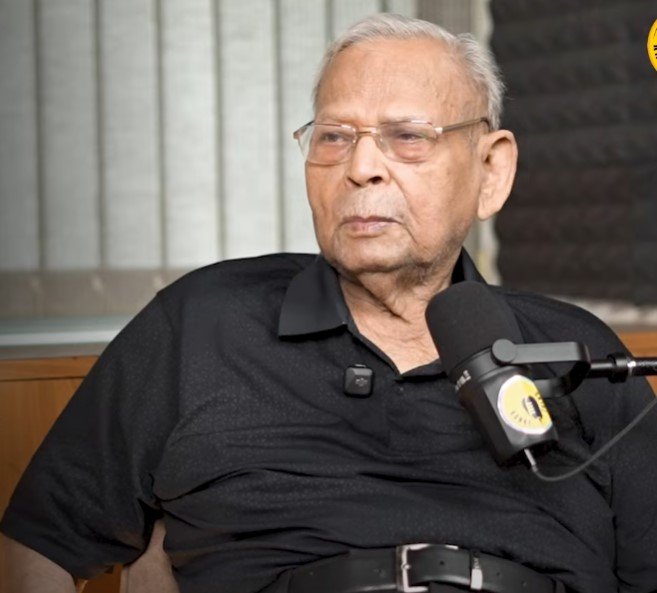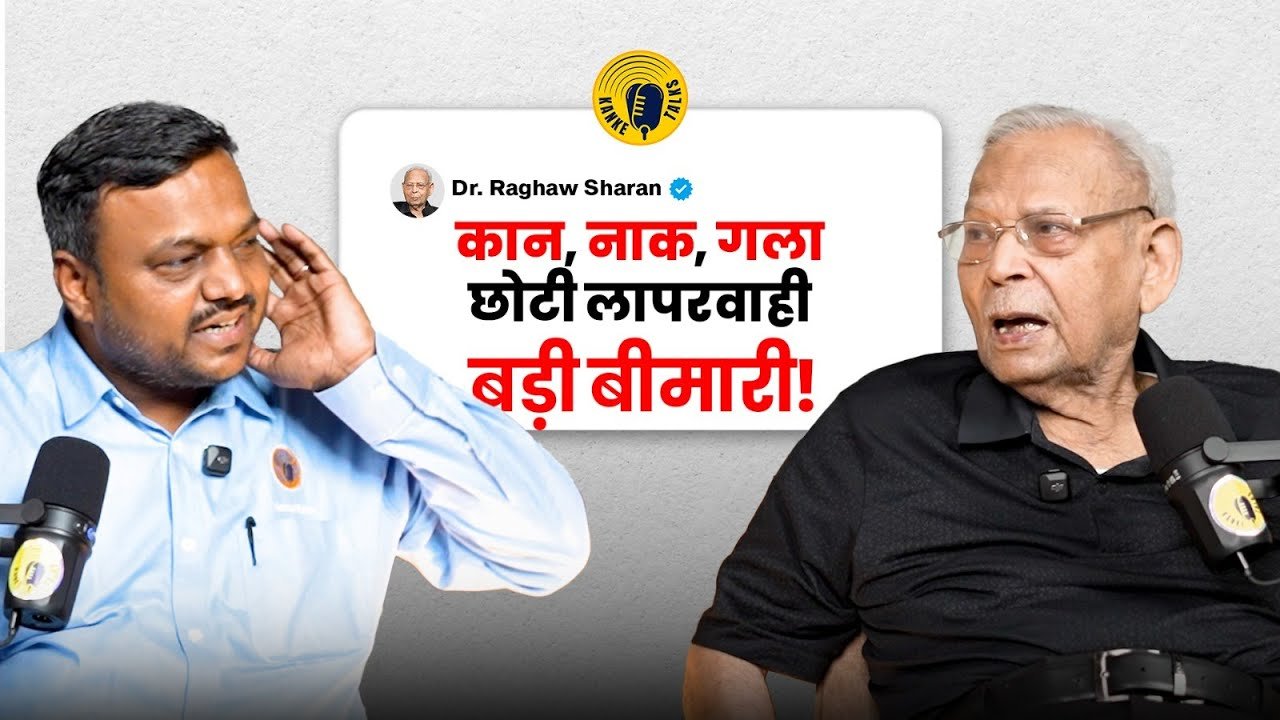In a world where titles often overshadow integrity, Dr. Raghav Saran, now in his nineties, is a man whose life whispers wisdom louder than any podium ever could. A pioneer in the field of ENT, he may have long retired from formal positions, but every word he speaks is steeped in decades of practice, sacrifice, ethics, and care.
Sitting comfortably at his Ranchi home, with a stethoscope now mostly hung on the wall, Dr. Saran’s memory is still sharp, his voice filled with clarity, and his heart unwavering in its belief: medicine is not a business, it’s a duty.

From Darbhanga to Edinburgh—A Life of Learning
Dr. Raghav Saran began his medical journey from Darbhanga Medical College, topping every year during his MBBS. Though he faced social biases and academic politics—especially when he was unfairly denied honors—he chose ENT, not out of defeat, but vision. “I realized that I would progress faster academically in ENT than in surgery or medicine,” he reflects.
His talent was soon recognized, and he was selected under a British government scheme that took him to London and Edinburgh. There, he earned prestigious qualifications like FRCS and DLO and even received an offer to teach at Columbia University in Canada. “But I wanted to come back. My work was here, in India,” he says simply.
Ranchi: A City, A Commitment
Returning in 1968, Dr. Saran continued teaching and practicing in Ranchi. Promotions came—first as Associate Professor, then Professor, and eventually Principal of the medical college. Despite his reputation, he remained humble, committed to patient care and teaching. “Being a doctor isn’t just about surgeries and medicine. It’s about trust,” he says.
At a time when doctors were seen as gods, he was among the few who resisted temptation and remained fiercely ethical. He performed thousands of surgeries but always discouraged unnecessary ones. “If a medicine can heal, why cut?” he’d say.
The Rise of Commercial Medicine—and His Disappointment
Today’s medical landscape disappoints him. “Doctors are given ICU admission targets. Some do three or four surgeries just to increase their fees. This isn’t medicine,” he laments. “Medical ethics is missing.” He worries that today’s doctors prescribe too many tests, sometimes influenced more by profit than necessity. “A patient doesn’t always need an MRI. Sometimes, saltwater gargling works just fine.”
Even worse, he says, is how some patients now come armed with Google searches and YouTube treatments. “You can’t treat yourself by watching videos,” he sighs.
The Human Side of a Healer
One of the most touching moments of his career was operating on a poor patient suffering from cancer near the brain. The man had only ₹200, but Dr. Saran and his colleagues completed the procedure for free, including medication and post-operative care.
“Sometimes ₹200 can save a life. Humanity still matters.”
He also shares heartfelt concern for children born deaf and mute. “The technology exists, but the cost—₹10 to ₹15 lakhs—is too high. It breaks my heart that many families can’t afford it.”
Technology, Trends, and Teenage Troubles
Dr. Saran is worried about young people constantly using Bluetooth earphones and earbuds. “They listen to music all night. This is damaging their hearing in early age. Sound goes directly to the brain. It’s not just about the ears anymore.”
He also warns against fashion-driven nose surgeries, tonsil removals without cause, and misuse of antibiotics. “Most tonsil surgeries are unnecessary. Cancer in the throat is real. A sore throat isn’t always simple—it can be a sign of something serious. That’s why diagnosis matters.”
When Simplicity Works
Ask him for a home remedy, and the doctor within him smiles. “Gargling with warm water and salt—people underestimate how effective that is. It increases blood flow and fights infection naturally.”
And mustard oil in the nose? “Yes, if you have a minor cold, mustard oil works well. But if there’s pus or infection, never use oil. Go to a doctor.”
Legacy Beyond Hospitals
Though offered top positions and the chance to open his own hospital, Dr. Saran never chased wealth. “I never wanted to be rich. I just wanted to be honest,” he says. Today, even at 91, he continues to see patients from across Bihar, Jharkhand, Uttar Pradesh, Chhattisgarh—even Nepal. He remains a legend not because of the number of surgeries, but because of the number of lives he’s touched with honesty.
Reflections on Life and Loss
He admits, with quiet pain, that politics sometimes interfered with his career. He recalls being feared by ministers because he wouldn’t bend. “One engineer told me he was scared of me because I was honest. Imagine that.” He feels sadness when young doctors today chase fast money. “They buy cars in residency. They run four hospitals at once. How can they care for patients properly?”
But he believes the nobility of medicine still exists—in doctors who treat, teach, and care without expecting applause.
His Final Gift: Donating It All Back
In his closing years, Dr. Saran is preparing to donate his ancestral property—two houses and 12 kattas of land—to the government. He’s not building a hospital in his name, nor chasing legacy. “What will I do with it now?” he asks. “Let it serve someone after I’m gone.”
A Message for the Youth
To young doctors, he says:
“Don’t rush. Take time to learn. Let your name become your brand, not your money.” To patients, his advice is simple: “Don’t self-medicate. Don’t use earbuds too much. Don’t ignore colds. Seek help early. Stay informed—but from doctors, not Google.”
And finally, a message that rings long after the podcast ends: “May my family never sleep hungry, and may I never let someone else’s family go hungry because of me. That’s enough to live by.”

No responses yet